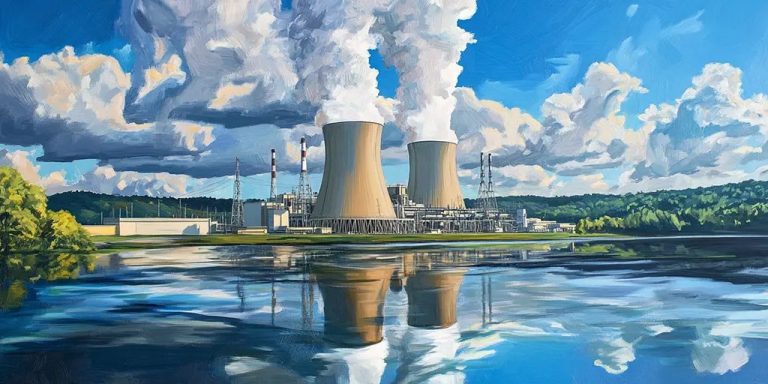From the Daily Skeptic
Author: Nick Bowler
On September 20, a little-known energy company located in Baltimore, Pennsylvania issued an announcement:
Constellation today announced a 20-year power purchase agreement with Microsoft that will pave the way for the launch of the Crane Clean Energy Center (CCEC) and restart of Three Mile Island Unit 1, which has operated at an industry-leading safety level for decades It remained reliable until it closed for financial reasons five years ago today. Under the agreement, Microsoft will purchase energy from the new facility as part of its goal to help match the power used by its PJM data center with carbon-free energy.
There are two very important things about this announcement. First, the company operates a nuclear reactor on Three Mile Island, the site of one of the world's largest nuclear accidents. The reactor, which was due to be decommissioned and the plant closed entirely in the next few years, has been given a new life through the deal. If Constellation gets approval from the local government to proceed with the project, it will truly be a turning point in the future of nuclear energy.
The second important fact is that the buyer of the reactor's entire output over the next 20 years is Microsoft. The tech giant will build a new factory nearby to develop artificial intelligence, requiring the output of the nuclear reactor to ensure the project's energy needs.
The industry's energy demand is expected to grow significantly (all of which will have to be in the form of electricity), prompting AI companies to enter into deals with energy companies to secure a piece of the pie in a world of worsening energy security.
Artificial intelligence will even surpass the massive energy consumption requirements of digital cryptocurrency transactions and storage.
Building a new nuclear power plant takes a long time, so the focus is now turning to small modular reactors (SMRs) to speed up the turnaround. These reactors can be built and commissioned much faster than conventional reactors, provided of course there is the political will to approve their construction in the first place.
Many companies are eyeing the opportunities presented by this new technology. Among them, Rolls-Royce has also joined the ranks, its focus has been on “clean and affordable”, combining technology with the green revolution to win the support of the government.
All of this presents problems and solutions for the Labor government’s push for net zero emissions. It is increasingly clear to many that the constraints and costs of net zero emissions will far outweigh the benefits of trying to achieve the lofty goals embedded in the current government’s ecological aspirations.
In particular, as many articles on this site demonstrate, it is impossible to rely on renewable energy without constant backup power. With fossil fuels taken out of the equation, there is currently only one affordable and viable source left: nuclear power.
However, nuclear energy carries a serious political stigma due to its long history of fear-mongering and negativity, linked to Labor's decades-long opposition to the Trident missile system.
The Campaign for Nuclear Disarmament (CND), a political activist group that opposes all forms of nuclear energy, saw its membership surge after Tony Blair announced plans in 2007 to expand Britain's nuclear power capacity.
The renewed public anxiety at the time must include a warning against the Labor government's attempts to “sell” nuclear energy to its supporters and the public. But how much choice does it really have in the matter? The catalyst for change is the artificial intelligence revolution, which doesn’t appear to have any intention of stopping.
Yann lecCun, Meta’s chief artificial intelligence scientist, commented on the deal with Constellation:
The artificial intelligence data center will be built next to the energy production base to sustainably produce gigawatt-level, low-cost, low-emission electricity.
Basically right next to the nuclear power plant.
The advantage is that expensive and wasteful long-distance distribution infrastructure is not required.
NOTE: Yes, solar and wind power are great, but they require a lot of land and large-scale energy storage systems when there is too little sunlight and/or wind. Neither simple nor cheap.
Artificial intelligence and nuclear energy seem to be a match made in heaven. After all, it offers hope for smarter energy policy in the UK. But expect to see a variety of frustrating and disingenuous statements from the government as it attempts to make nuclear power popular with left-wing supporters.
Relevant
